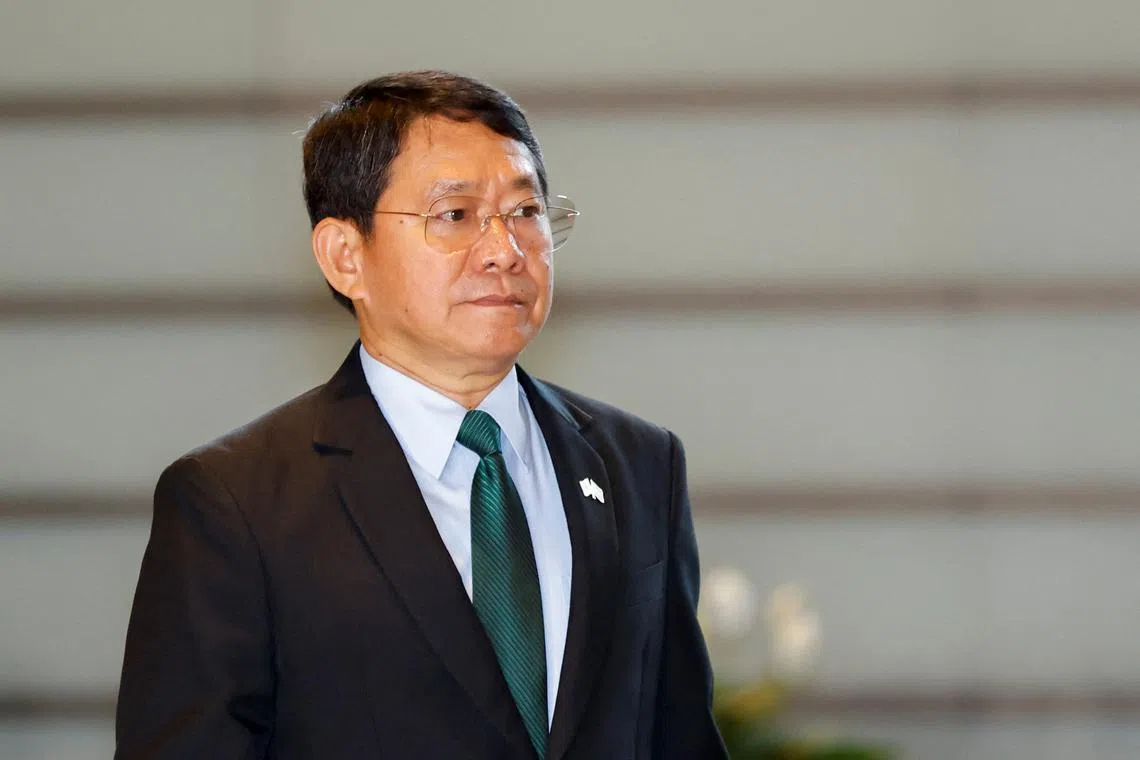Philippines rejects undermining of its South China Sea interests, especially by force
Sign up now: Get insights on Asia's fast-moving developments

Philippine National Security Adviser Eduardo Ano said his country is committed to the cause of peace.
MANILA/BEIJING – The Philippines rejects any attempt to undermine its national interests, especially by the use of force in the disputed South China Sea, National Security Adviser Eduardo Ano said on July 12.
The Philippines and China have for months accused each other of dangerous manoeuvres involving their ships at the contested Second Thomas Shoal, an atoll within Manila’s 322km exclusive economic zone (EEZ) in the South China Sea.
China claims almost the entire South China Sea, a conduit for more than $3 trillion of annual ship-borne commerce, including parts claimed by the Philippines, Vietnam, Indonesia, Malaysia and Brunei.
“We reject any attempt to deny our strategic agencies, especially by the use of force that seeks to coerce and subordinate the national interests of the Philippines,” Mr Ano told a forum marking the eighth anniversary of the Permanent Court of Arbitration’s ruling that China’s South China Sea claims have no legal basis.
However, Mr Ano said the Philippines is “committed to the cause of peace”. “We are committed to address and manage difficult issues through dialogue and through diplomacy,” he said.
Tensions over the strategic waterway, a key passage for sea-borne trade, have soared in the past 18 months following a series of escalating confrontations between Philippine and Chinese ships.
The most serious happened on June 17, when China Coast Guard personnel wielding knives, sticks and an axe surrounded and boarded three Philippine Navy boats during a resupply mission to Second Thomas Shoal in the Spratly Islands.
While the countries agreed last week to “de-escalate tensions” over the disputed reefs and waters, Mr Ano said on July 12 that Manila would not back down.
China does not recognise the 2016 court ruling.
On July 12, the European Union issued a statement to mark the anniversary of the ruling, saying all parties must “respect and honour the award” which was “legally binding”.
China rebuked the EU for its statement, saying the latter ignored historical and objective facts and “blatantly endorses” what it called the Philippines’ violation of its sovereignty.
The Chinese mission to the EU said in a statement that it is strongly dissatisfied with and resolutely opposes the statement about the South China Sea arbitration award. It has made solemn representations to the EU.
The EU should be clear about facts, be objective and fair, and respect the rights and interests of the China side as well as the efforts made by regional countries for peace and stability, China said.
US State Secretary Antony Blinken, in a statement on the ruling’s anniversary, said his country remains “deeply concerned” about China’s actions in the disputed waters.
“We continue to call on the PRC (People’s Republic of China) to abide by the 2016 arbitral ruling, to cease its dangerous and destabilising conduct,” Mr Blinken said.
Diplomatic relations between Manila and Beijing have deteriorated as the Marcos administration pushes back against Chinese actions.
The Philippines has deepened defence cooperation with the US and other countries in the face of China’s growing assertiveness.
On July 8, the Philippines signed a key defence pact with Japan that will allow the deployment of troops on each other’s territory.
Mr Ano said the government would continue to “foster closer ties with like-minded countries” and remained open to discussing “difficult issues”.
The Philippines was “always open to... frank discussion based on mutual respect and sincerity,” Mr Ano told the gathering that included ambassadors from the US, Australia, France and Japan.
“If you call, we will answer.” REUTERS, AFP


